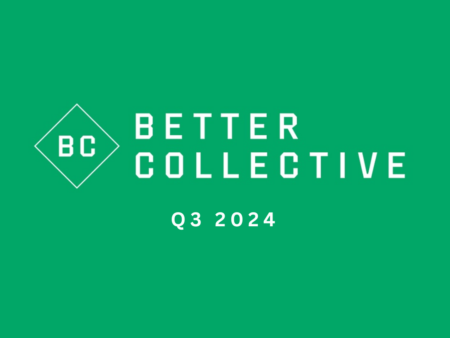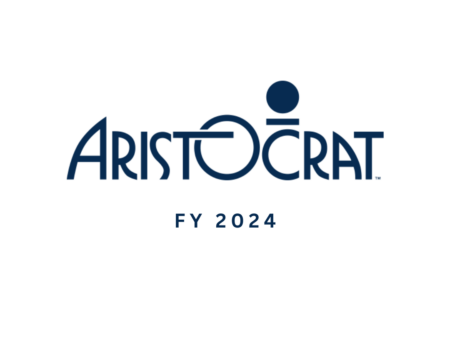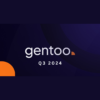Genting Singapore, a leading player in the global gaming and hospitality industry, has unveiled its financial results for the first half of 2024, showcasing impressive growth across multiple segments. The group’s robust performance highlights its strategic resilience and ability to capitalize on market opportunities, despite global economic uncertainties.
Record-Breaking Revenue and Profit Growth in H1 2024
In the first half of 2024, Genting Singapore achieved a net profit of SG$356.9 million (US$270.84 million), marking a significant 29% increase compared to the same period in 2023. This surge in profitability is attributed to the group’s diverse revenue streams and efficient cost management practices.
Group revenue reached an unprecedented SG$1.4 billion, representing a 25% increase from the SG$1.1 billion recorded in H1 2023. This achievement underscores the group’s ability to sustain revenue growth amidst a competitive industry landscape.
Strong Performance in Gaming and Non-Gaming Segments
Gaming Revenue
The gaming segment continues to be the cornerstone of Genting Singapore’s financial success. In H1 2024, the company reported gaming revenue of HK$957.6 million, reflecting a 28% year-on-year increase. This growth was driven by heightened visitor numbers, an improved VIP gaming hold, and strategic marketing initiatives that successfully attracted both local and international players.
Non-Gaming Revenue
Beyond gaming, Genting Singapore has also seen significant growth in its non-gaming revenue, which increased by 19% year-on-year to reach SG$333.2 million. This segment includes revenue from hospitality, entertainment, retail, and other leisure activities. The growth in non-gaming revenue demonstrates the effectiveness of Genting Singapore’s strategy to diversify its income sources, reducing dependency on the volatile gaming sector.
Other Segments
However, the group’s ‘others’ segment, which encompasses its investment business and support services, experienced a slight decline. Revenue from this segment decreased by approximately 9%, from SG$308,000 in H1 2023 to SG$280,000 in H1 2024. While this reduction is minimal in the broader context of the group’s overall performance, it highlights areas where the company may need to revisit its strategies.
Adjusted EBITDA Reflects Overall Financial Health
Genting Singapore’s Adjusted EBITDA (Earnings Before Interest, Taxes, Depreciation, and Amortization) for the first half of 2024 stood at SG$570.8 million, a 26% increase from H1 2023. This significant improvement is indicative of the group’s operational efficiency and its ability to manage costs while driving revenue growth.
Quarterly Variations in Adjusted EBITDA
Despite the overall positive outlook, there was a noted decline in the group’s Adjusted EBITDA for Q2 2024, which came in at SG$201.3 million. This represents a decrease compared to Q1 2024, primarily due to seasonal factors, a lower VIP gaming hold, and the temporary closure of the Hard Rock Hotel for renovations and rebranding efforts. These factors, while affecting short-term earnings, are part of the group’s long-term strategy to enhance its property portfolio and maintain its competitive edge.
Resorts World Sentosa 2.0: A Vision for the Future
Looking ahead, Genting Singapore is on track with the first phase of its highly anticipated Resorts World Sentosa 2.0 (RWS 2.0) development. This phase includes the launch of Illumination’s Minion Land, the Singapore Oceanarium, the Central Lifestyle Connector, and an all-suite hotel that will replace the Hard Rock Hotel. The soft opening is scheduled for early 2025, positioning RWS 2.0 as a key driver of future growth for Genting Singapore.
These developments are expected to attract a significant number of tourists and local visitors, further enhancing the group’s revenue streams. The expansion of Resorts World Sentosa is a clear demonstration of Genting Singapore’s commitment to maintaining its leadership position in the hospitality and entertainment sectors.
Strategic Implications and Future Outlook
Genting Singapore’s financial results for H1 2024 underline the group’s strategic foresight and operational excellence. The significant growth in both gaming and non-gaming revenues, coupled with a robust profit margin, reflects the company’s ability to adapt to market trends and invest in future growth opportunities.
Challenges and Opportunities
While the slight dip in the ‘others’ segment and Q2 Adjusted EBITDA presents challenges, these are outweighed by the group’s overall strong performance. The completion of RWS 2.0 and ongoing renovations are expected to yield long-term benefits, positioning Genting Singapore for continued success in a rapidly evolving industry.
Conclusion: The Performance
Genting Singapore has demonstrated exceptional performance in the first half of 2024, setting new benchmarks in revenue and profit growth. With strategic investments in property development and a focus on diversifying revenue streams, the group is well-positioned to continue its upward trajectory. As the company prepares for the launch of RWS 2.0, stakeholders can expect sustained growth and innovation in the years ahead.
FAQs About Genting Singapore’s H1 2024 Financial Performance
1. What was Genting Singapore’s net profit for H1 2024?
Genting Singapore reported a net profit of SG$356.9 million (US$270.84 million) for H1 2024, a 29% increase year-on-year.
2. How much revenue did Genting Singapore generate in the first half of 2024?
The group generated SG$1.4 billion in revenue during H1 2024, a 25% increase from the SG$1.1 billion recorded in H1 2023.
3. How did Genting Singapore’s gaming revenue perform in H1 2024?
Gaming revenue improved by 28% year-on-year, reaching HK$957.6 million in H1 2024.
4. What was the growth in non-gaming revenue for Genting Singapore in H1 2024?
Non-gaming revenue increased by 19% year-on-year, totaling SG$333.2 million in H1 2024.
5. Did all segments of Genting Singapore’s business grow in H1 2024?
While gaming and non-gaming segments grew, the ‘others’ segment, which includes investment business and support services, saw a slight 9% decrease in revenue from SG$308,000 in 2023 to SG$280,000 in 2024.
6. What was Genting Singapore’s Adjusted EBITDA for H1 2024?
Adjusted EBITDA for H1 2024 was SG$570.8 million, a 26% increase year-on-year.
7. Why was the Adjusted EBITDA for Q2 2024 lower compared to Q1?
The lower Q2 2024 Adjusted EBITDA of SG$201.3 million was due to seasonality, a lower VIP hold, and the temporary closure of the Hard Rock Hotel for renovations and rebranding.
8. What developments are planned for Resorts World Sentosa 2.0?
The first phase of Resorts World Sentosa 2.0 includes Illumination’s Minion Land, the Singapore Oceanarium, the Central Lifestyle Connector, and an all-suite hotel replacing the Hard Rock Hotel. The soft opening is scheduled for early 2025.
9. What is the expected impact of RWS 2.0 on Genting Singapore’s future performance?
RWS 2.0 is expected to attract more tourists and local visitors, contributing to future revenue growth and enhancing Genting Singapore’s market position.
10. What challenges did Genting Singapore face in H1 2024?
The group faced challenges with a slight decline in the ‘others’ segment and lower Q2 Adjusted EBITDA due to external factors, but overall performance remained strong.
11. How is Genting Singapore preparing for future growth?
Genting Singapore is focusing on property development, such as RWS 2.0, and diversifying its revenue streams to sustain long-term growth.


















